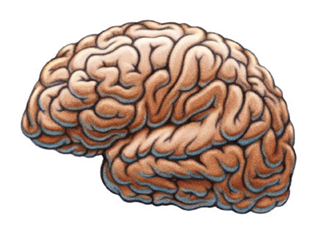The word “algorithm” might be one that many people can’t spell, pronounce, or define, but it has become a commonplace term in the online business world. Nearly anyone in the tech industry
knows that an algorithm is the complicated set of rules that a search engine uses to rank the thousands of web pages that match a user’s keyword phrase search. Over the years, engineers have added layers of detail, expanded the range of language capability, and honed the accuracy of these algorithms to an amazing degree. But a new approach to processing keyword searches just might spell the end for even the most complex of these mathematical rule systems.
Deep Learning
“Deep learning” sounds like science fiction, but the reality is that it may have already helped you with a Google search. This type of system consists of an incredibly complex network of connections, which work together not to follow a set of rules devised by engineers, but to actually learn facts and use those facts to execute tasks—like ranking web pages.
Here’s an example to clarify the difference between an algorithm and deep learning. If using an algorithm is like giving a student a color-by-number project to complete, deep learning is like asking the student to draw and color a picture freehand. The student must draw on his own knowledge and previous experience to do the job, instead of following a set of prescribed steps.
Copying the Human Brain
Another term for deep learning is a “neural net.” If that term reminds you of the brain and nervous system, it’s because there is a very close connection between the two. A neural net is based on what we know about the functioning of the human brain, which uses connections between myriads of bits of information to learn about reality and improve its ability to interact with that reality. The creators of a deep learning system quite literally give it a life of its own, then give it the liberty to process a search engine user’s keyword search and come up with page rankings.
One of the biggest concerns that engineers have about deep learning is the fact that human operators lose a lot of control over how the system processes searches and yields rankings. With an algorithm, a human supervisor can change a rule slightly or alter the influence that a certain factor has if the search page rankings don’t seem quite right. A deep learning system, however, is far more complicated, and a supervisor might not be able to even tell why the system is ranking pages a certain way. It’s a bit like trying to figure out why a person comes up with a different ranking of ice cream flavors than you do.
The Advantages
Clearly, however, deep learning offers massive advantages over the algorithm approach. For instance, what about when a user executes a search for a very rare keyword phrase, or even one that no one has ever searched for? An algorithm that relies on prescribed rules might not have a sufficient reference point to yield a logical ranking. A neural net, however, can draw on a network of related facts to analyze the keyword phrase and provide rankings that do make sense. In fact, Google is already using deep learning to do just that with a small percentage of searches each day, according to reports from within the company.
Deep learning holds some advantages not only over algorithms, but even over the human brain itself. As miraculous as the brain is, it does forget things! If we are able to build a machine that can truly learn, it won’t forget what it learns. Researchers have found that current deep learning systems actually do a better job than human experts when deciding how a given set of web pages should be ranked for the benefit of the searcher.
A Fascinating Future
If—and some will undoubtedly say when—deep learning takes the place of algorithms in ranking web pages, SEO will change dramatically as well. We have already seen simplistic approaches like keyword stuffing and “bad link” building become obsolete as algorithms have improved, but deep learning systems will force SEO to become more comprehensive, intelligent, and diverse than ever before. Is your consultant ready to help your website make that change?
REFERENCE: Wired, “AI Is Transforming Google Search. The Rest of the Web Is Next,” http://www.wired.com/2016/02/ai-is-changing-the-technology-behind-google-searches/ (Accessed 2/29/2016).









